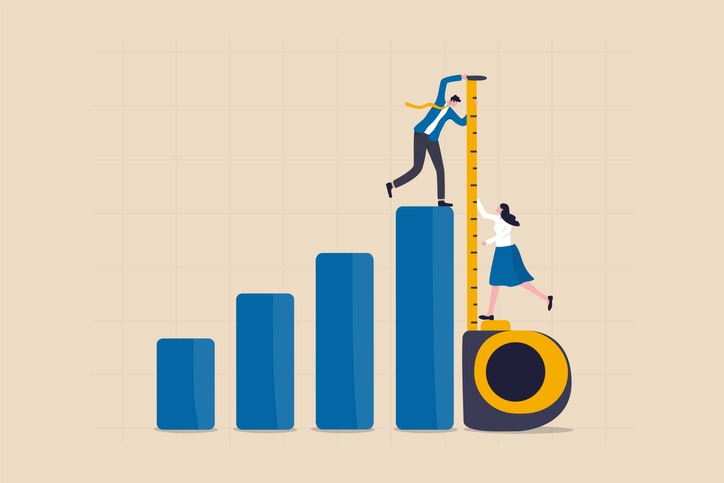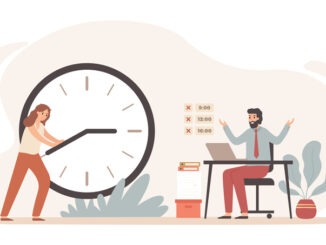
To optimise your time and improve your productivity, identify the times when you are most productive
CREDIT: This is an edited version of an article that originally appeared on Business News Daily
Boosting productivity isn’t about working more; it’s about determining when you’re most productive, discovering what’s draining your focus, and proactively restructuring your workday to get more done.
We all have different times when we’re most dynamic and productive. There are lots of things you can do to identify these periods so that you can harness this time to improve your productivity and work quality.
Understand that working more won’t necessarily help productivity
Too often, when professionals don’t meet their productivity targets during traditional work hours, they work evenings and weekends to catch up. This tendency is especially prevalent among, and dangerous for, business owners who already have stress management issues. With the average human attention span at just over eight seconds, and peaking at just over 50 minutes, working too much can actually diminish productivity. In fact, breaks are the key to productivity – daydreaming, meditation and even naps can all improve productivity and performance.
Pay attention to your daily habits
Working too much isn’t the answer; to improve productivity you must take advantage of your personal focus patterns. Everyone’s focus cycle is different so maximise your productivity by learning to understand your mind’s rhythms. Consider the following best practice for discovering when you’re most productive:
- Monitor yourself during the day: pay close attention to your daily habits, energy and focus levels – for example, you probably already know whether you’re an early bird or a night owl based on when you feel most alert and attentive – when do you feel most focused?
- Note when you feel thrown off course: in addition to discovering when you feel most focused and productive, determine when you feel thrown off course. For example, if you sleep in, is the rest of your day a struggle at work? If you skip breakfast, or your morning walk, is your productivity affected?
- Ask colleagues for their opinions: it can be helpful to ask co-workers when they observe you to be at your peak energy and focus, and when you start to struggle. Requesting feedback about your work patterns from trusted colleagues can provide valuable insights.
- Keep a diary to identify your focus cycle: consider keeping an informal diary about what you accomplish throughout your workday to help you identify your productivity peaks and troughs. You’ll be able to begin to identify patterns that indicate when you’re most and least productive.
Determine what’s draining your time
Next, determine what’s holding you back from getting your work done. Productive people often say their secret is excellent time-management, but not everyone is naturally good at it. Ask yourself if the following time-management obstacles affect you:
- Do you set priorities? Failing to set priorities can diminish your productivity. You’ll flit from one project to another without getting vital work done. Take a few moments in the morning or the night before your workday to prioritise your tasks and projects. Tackle your most important tasks during your most productive times.
- Are you surrounded by distractions? These can kill workplace productivity. Are you surrounded by a noisy office, or are you drawn to your smartphone? Do you tend to browse the internet or get caught up in office gossip? Are meetings draining your focus? List the distractions that hurt your productivity, and create a plan to minimise them.
- Do you underestimate the time and effort a task will take? Not understanding a task’s scope can lead to inadequate preparation and project hiccups. Take a moment to assess a project’s scope – dedicate appropriate planning and resources to this and set productivity milestones to stay on track.
- Do you procrastinate? The first step toward overcoming procrastination is understanding how it affects you. Do you put off projects and tasks and avoid specific situations? Do you do things at the last minute? Try using productivity apps that can help you stay focused and organised.
- Do you multi-task too much? Multi-tasking is often necessary for busy professionals, but too much means you won’t be paying adequate attention to any one task. Give your projects the focus they deserve.
How to maximise your most productive work time
Once you understand when you’re most productive and what’s draining your productivity, you can begin planning your schedule to maximise your effectiveness. Proper workday planning goes hand-in-hand with setting priorities. If you start your workday without a plan, you run the risk of aimlessly skimming through tasks and projects with no real impact. Try these workday planning tips:
- Plan your most productive time with care: plan your workday with your highest-priority projects scheduled for your most productive time.
- Plan for necessary-but-time-consuming tasks: things such as answering emails and attending meetings are time-consuming yet unavoidable parts of many workdays and it’s crucial to minimise the productivity drain and wasted time associated with these tasks. Set a defined block of time for responding to emails, and create and adhere to strict meeting timelines and agendas.
- Plan tasks according to your energy levels: take advantage of peak energy levels, and note when you’re likely to be demotivated. For example, if you find yourself drained after meetings, avoid working on high-priority projects that require your full energy and attention after a meeting. Consider slotting email responses or another low-energy task into these times. Conversely, if you know you’ll be energised after working on a particular project, schedule a challenging task right afterwards to take advantage of your momentum.
- Consider a flexible schedule: many employers are open to accommodating remote and flexible work schedules for their employees. Remote work can boost productivity for many people, and flexible workplace options can help businesses attract and retain top talent. If you feel more schedule flexibility could boost your productivity, discuss your options with management. For example, if you are most productive early in the day, see if it’s possible to work from 7 a.m. to 3 p.m. This way you’ll avoid your afternoon slump and spend your most productive hours on vital projects.
- Schedule breaks and wellness into your day: consider your health and wellness when you’re planning your workday. Schedule exercise, breaks and healthy meals to ensure you’re at your best. Take time to stretch, take a walk, get fresh air, meditate and otherwise refresh your mind.
- Experiment with different work patterns to create the most effective workday plan for you: not every day will be the same, but each day can have a well-thought-out productivity plan.


Be the first to comment